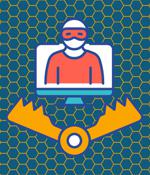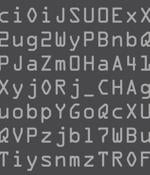Security News

Microsoft has addressed a known issue causing the Remote Desktop app to freeze on Windows 11 systems after installing the Windows 11 2022 Update. "After installing Windows 11, version 22H2, the Windows Remote Desktop application might stop responding when connecting via a Remote Desktop gateway or Remote Desktop Connection Broker," Redmond explains on the Windows health dashboard entry published in November.

Tricking users at targeted organizations into installing legitimate remote monitoring and management software has become a familiar pattern employed by financially motivated attackers. After discovering the maliciously installed software on a system at one of the FCEB agencies, CISA went searching for and found more thusly compromised systems at other agencies.

CISA, the NSA, and MS-ISAC warned today in a joint advisory that attackers are increasingly using legitimate remote monitoring and management software for malicious purposes. More worryingly, CISA discovered malicious activity within the networks of multiple federal civilian executive branch agencies using the EINSTEIN intrusion detection system after the release of a Silent Push report in mid-October 2022.

Over several weeks in October of 2022, Specops collected 4.6 million attempted passwords on their honeypot system. Though the examples given here focused on RDP connections, a honeypot is not limited to that type of connection, and any remote access system is subject to attacks, like SSH. What should an organization do to minimize the potential damage?

The maintainers of the Git source code version control system have released updates to remediate two critical vulnerabilities that could be exploited by a malicious actor to achieve remote code execution.X41 D-Sec security researchers Markus Vervier and Eric Sesterhenn as well as GitLab's Joern Schneeweisz have been credited with reporting the bugs.

Git has patched two critical severity security vulnerabilities that could allow attackers to execute arbitrary code after successfully exploiting heap-based buffer overflow weaknesses. A third Windows-specific flaw impacting the Git GUI tool caused by an untrusted search path weakness enables unauthenticated threat actors to run untrusted code low-complexity attacks.

"The popularity of hybrid work, and the associated risks, means that companies must prioritise training and education to make remote working safe. Traditional methods of controlling and securing company data aren't as effective when employees are working in remote locations and greater responsibility falls on the individual. Companies must acknowledge the unique risks associated with remote work and activate relevant security management systems, as well as empower employees to deal with a certain level of risk," said Daniel Hofmann, CEO of Hornetsecurity. Hofmann commented: "Increasing remote working cybersecurity measures is particularly important in the current climate, as cybercriminals are becoming smarter and using remote working to their advantage. We've seen an increase in smartphone attacks as hackers understand that both personal and professional data can likely be accessed as people can, and often do, carry out work on personal devices."

One popular use of JSON is the JWT system, which isn't pronounced jer-witt, as it is written, but jot, an English word that is sometimes used to refer the little dot we write above above an i or j, and that refers to a tiny but potentially important detail. Loosely speaking, a JWT is a blob of JavaScript that is used by many cloud services as a service access token.

In the USA, there are loads and loads of regulations about how a car is supposed to work and items it must have. Seat belts and Air Bags are commonly understood to be in modern cars sold in USA. There are federal and state agencies that oversee this aspect.

A previously undocumented Python backdoor targeting VMware ESXi servers has been spotted, enabling hackers to execute commands remotely on a compromised system. VMware ESXi is a virtualization platform commonly used in the enterprise to host numerous servers on one device while using CPU and memory resources more effectively.